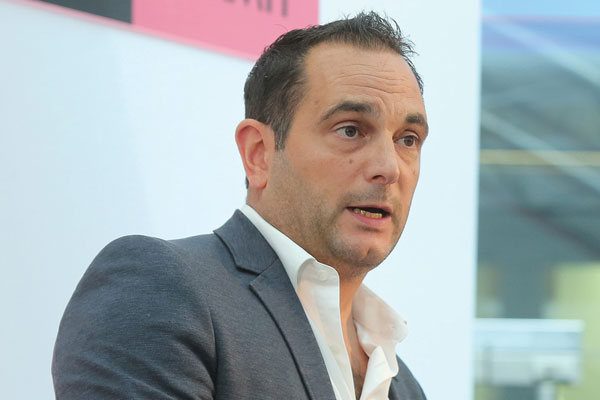You are viewing 1 of your 2 free articles
Comment: Why Attraction Tickets resigned from Abta
.
This week, we have resigned our membership of Abta having joined Abtot so that we can continue to offer full financial protection via a bond on non-flight holiday packages.
As Abta once did, Abtot offers a risk-based, balanced bonding scheme run by professionals.
What triggered this difficult decision was Abta’s behaviour over membership fees during Covid, its seeming refusal to cut inflated costs, its grossly unfair bonding scheme and its ineffectual lobbying.
Membership fees
Before Covid, Abta’s annual membership fees were calculated on gross turnover and indeed still are for new members.
When Covid hit in March 2020, Abta granted a 50% reduction of 2020 membership fees.
Most members lost virtually 100% of gross turnover in 2020 so the 50%, while not going far enough, was a move in the right direction.
When it came to renewing membership in 2021 (which should have been based on 2020 gross turnover), Abta simply changed the rules for existing members and fixed membership fees based on 2019 gross turnover.
For my company, this meant an unjustified and unexpected cost of over £50,000 at precisely the time when we – and the whole industry – could least afford it.
There was no consultation with, nor explanation to, its members for the change in subscription rules.
There was no apology or call from their CEO. It was simply this: take it or leave it.
Since the alternative bond and financial failure insurance market for travel companies had completely dried up during Covid, there was no option other than, very reluctantly, to renew our membership and pay the inflated subscription fees which were based on an unreasonable and artificially concocted arrangement.
During Covid, the whole industry had to cut costs drastically and face some heart-breaking, almost impossible, decisions and dilemmas. Like most travel companies, we had to use furlough, redundancy, sabbaticals, salary sacrifice, reducing services, working harder, cutting benefits, stopping pension contributions and stripping out all possible overhead in order to survive.
There is no evidence in Abta’s latest financial statements filed at Companies House that they undertook any cost-cutting measures at all during Covid.
The number of employees was largely flat at 98, as was the total salary bill of around £6 million.
The number that really stands out though is the renumeration of the highest paid director of Abta, which for the year ending June 2021 was £315,000.
Can the CEO of a comparatively small trade association really justify a salary that is almost double that of the UK prime minister? Surely not during the biggest crisis that the travel industry has ever faced and at a time when members were suffering so acutely.
An effective membership organisation needs to be representative of the members that it claims to represent.
The real injustice though is that this inflated salary was funded by artificially changing the subscription rules and inflating the membership fees for members who could least afford to pay.
Lobbying
The Covid crisis showed that the outbound travel market isn’t a priority for the UK government.
It provided extensive support for UK hospitality via a VAT reduction and the ludicrous ‘eat out to help out’ scheme; but the travel industry only got access to the more general furlough and loan schemes despite being the hardest hit of all industries.
The government failed to appreciate that less than half of outbound travel is for the purpose of holidays and that the sector is critical for trade and jobs and for bringing families together.
And holidays are not frivolous or discretionary but essential for most families. They make life worth living.
Regardless of that crucial fact, the UK government was never going to be seen to support an industry which puts polluting planes in the sky, so any lobbyist working on behalf of the UK travel industry had a very tough job on their hands.
However, the lobbying that Abta undertook during Covid (a “fact” used to help justify the lack of cost-cutting and continued high salaries in the organisation) was misdirected.
Their general lobbying approach was this: ‘If the UK travel industry does not get sector-specific support, there will be a swathe of bankruptcies.’ This doomsday scenario did not transpire.
Perhaps Abta underestimated the resilience of people and companies in the travel industry or the willingness of its members to cut costs and take risks in order to survive?
Their lobbying would have been more productive if it had focussed on the inevitable post-Covid chaos at our ports and airports.
The government needed to protect travel industry jobs to avoid the shambles we witnessed this summer.
It would have been more likely to listen to arguments for saving jobs if Abta had emphasised that this would also save it from the reputational damage that the summer chaos caused.
Even if that approach hadn’t proved effective in getting government support, at least Abta’s forecasts would have been correct, thus boosting its credibility for future lobbying.
Most importantly though, to lobby effectively, you need passion and complete dedication to the cause.
If you are sitting on a protected £315k+ annual remuneration package and not personally suffering the impact of Covid and government policy, I cannot see how you will ever feel the necessary outrage on behalf of your members.
The laid-back demeanour of Abta’s leadership and the general lack of visible commitment clearly undermined the travel industry’s messaging to government.
What Abta does
In June 2021 – 14 months after the start of the Covid outbreak – Abta sent a questionnaire to members asking what services they wanted and valued. It promised to share the results but never did.
More importantly though, why did it take them over a year after Covid started before surveying members, given that the results could and should have been the trigger for a cost-cutting programme to assist members with their subscription fees?
Some of the Abta activities listed on the questionnaire were:
- Engagement with elected representatives
- Attending conferences
- Managing social media
- Ensuring Abta representation at consultative committees and advisory groups
- Developing proactive PR
- Undertaking regular research to establish the value of the Abta brand.
- Promoting ‘looking for the Abta logo’ through multiple communications campaigns under the Travel with confidence proposition
- Feeding into government engagement on sustainability issues (for example climate change, modern slavery, animal welfare)
- Producing the Abta Magazine
Many of these activities are vague at best. Let me pick out a few.
Firstly, despite their promotion of the Abta logo, I can categorically reassure readers that showing the Abta logo through the booking funnel versus not showing it, has absolutely no impact on booking conversion.
We have a/b tested this hypothesis extensively and reached statistical significance on three variations of the test.
The results were all neutral and I’d be happy to share them with any members who are concerned that leaving Abta would lead to decreased conversion rates. It won’t.
Abta undoubtedly has noble aims with regards to sustainability (it appeared eight times on the questionnaire) but surely there are specialist, scientific organisations that are much better placed to advise government on these important issues?
Fortunately, the bond insurance market for travel has eased. Members now have a choice.
They can stay with Abta and pay its hugely inflated subscription fees, which are subsidising large Abta secretariat salaries (£1.36 million in the year ended 30 June 2021) and lots of activities members won’t use.
Or they can find alternative bonding arrangements with the likes of Abtot who focus on what we really need, which is compliance with the Package Travel Regulations and financial protection for our customers.


















